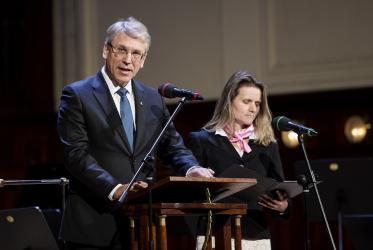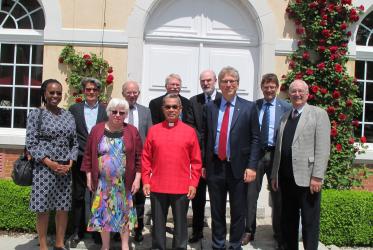Displaying 1 - 20 of 37
Healing Together
A Facilitator’s Resource for Ecumenical Faith and Community-Based Counselling
15 October 2020
Freedom of religion rooted in justice
06 March 2020
Fr Alexi - a peacemaker in Syria
21 December 2018
A moment in ‘Time’: an interreligious vision in Erlangen
20 December 2018
WCC general secretary visits churches in Czech Republic
17 December 2018
Walking together against hatred and violence
26 February 2018
G20 summit: call to pray for peace in Hamburg
07 July 2017
WCC general secretary speaks on religion and discrimination
14 February 2017
Symposium focuses on religion, violence, extremism
04 February 2016
WCC/UN conference calls for coordinated action on refugee crisis
20 January 2016
Rebuilding a smashed church in Albania
23 December 2015















